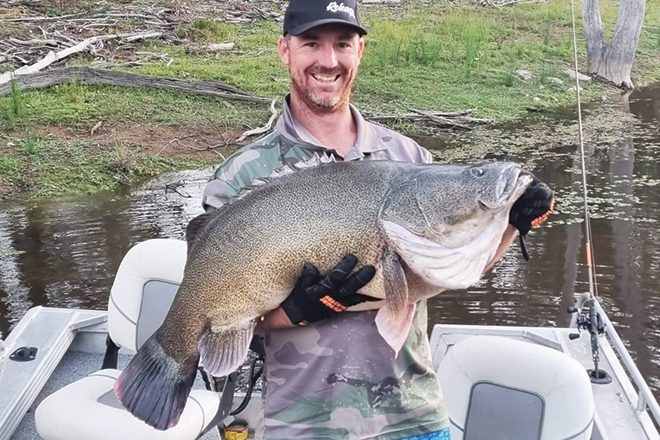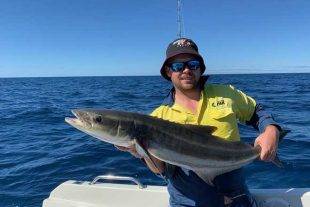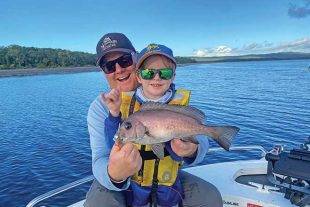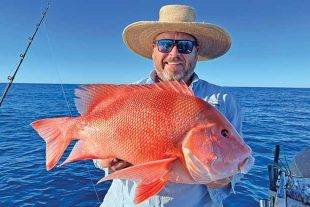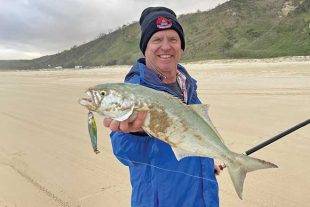As the saying goes, “To be forewarned is to be forearmed,” and this will be the case at this gathering of like-minded anglers and fish stockers. Freshwater workshops
There are many points to be dragged through the coals, which will also include ‘actions’ and ‘results’.
- Freshwater biologists – ‘a total lack of’
- Research into the results of fish restocking on water storages and streams – ‘not taking place’
- Broodstock being collected from water storages and not from the wild
- The period of time the broodstock fish are held in onsite and offsite locations – suggested time period prior to release back into the wild
- The need for pit tags to be put into released broodstock that go back into the wild, or are they dispatched
- An audit of hatchery stocks and of the hatcheries themselves for quality control on species to be released
- A result required on what is the total allowable broodstock fish to be held over a given period – that is, three years maximum or less
- Bookkeeping on where fingerlings have been released from stocking groups, along with the hatcheries for future information
- Species of fish sold to be put into farm dams – a translocation hazard here as no actual information on what side of the Great Divide they were released on – a detailed map to be provided by Fisheries outlining available locations for all species to be stocked on private dams
- Size limits – no change to the minimum of 60cm for cod, all freshwater species, and no maximum – to remain as is, and if you want a reason, ask me
- Silver perch – bring the minimum size limit up to 35cm from 30cm and a maximum take of five from dams, not two
- Golden perch – the minimum size limit to be brought up to 35cm in line with silver perch, with 10 in possession per angler
- Yellowbelly stocking groups, I ask that you all look around the room at this meeting, at the older people, and then look in between for younger members – this will be a major concern in the near future for all stocking groups because we have been slamming in fish for over 30 years, what’s the result and future
- The new executive director for Fisheries Queensland, salt and freshwater, Mr Dallas D’Silva – welcome sir to a ‘broke’ but at this stage not a broken fishery, both salt and freshwater.
Funding Freshwater workshops
After having a letter being sent to me advising of a $73 million-dollar format being set aside for a fisheries strategy over the first eight years 2019-2027, we must understand this also covers salt and freshwater areas.
It is not enough, as this will include commercial fishing ventures as well. Freshwater workshops
We have to have an all-waters fishing licence for all recreational anglers 18 years and over, both yearly and weekly licences to be available.
We have a great chance to gain some $36 million dollars yearly across the board at a cost of 10c per day.
Costs locked in at $36.50 yearly for the next 10 years, which will equate to $365 million total.
What about the next 10 years – make the cost $45 per year and $10 weekly, that’s more than $450 million over 10 years.
No doubt though, we will be fobbed off with a reply of “We will have to have a public consultation study to ask all anglers.”
The above was done back in 2014 by the MRAG Asia Pacific Group – a 132-page report exists.
MRAG Asia Pacific Group’s address is Level 30, 345 Queen St, Brisbane Qld 4000 or PO Box 732, Toowong, Qld 4066, phone 07 3371 1500 or email info@mragasipacific.com.au and for the attention of MRAG Asia Pacific Group chief executive officer Duncan Souter or review team chair Professor Glenn Hurry.
Information for the review came from QSIA, Sunfish, ANSA, FFSAQ, MBSIA, WWF and the Queensland Recreational Fishers Network.
And, 16 consultation meetings were held throughout Queensland – Gold Coast, Sunshine Coast, Wynnum, Redcliffe, Rockhampton, Gladstone, Bundaberg, Hervey Bay, Tin Can Bay, Cairns, Innisfail, Townsville, Bowen, Mackay, Warwick and Karumba.
Note – this review was not well advertised at the time and 14 of the 16 meetings voted overwhelmingly in support of an ‘all waters licence’ and the other two wanted funding.
Extract from the review… Freshwater workshops
To licence or not to licence
Discussions around recreational fishing licensing are usually had in the context of raising revenue to fund recreational fishing services and support infrastructure, however there is much more to it than that.
Perhaps the primary benefit from an RFL is to strengthen the information base upon which to manage our fisheries.
Information from licensing tells us how many people are fishing, where they are from and importantly provides an efficient sampling ‘frame’ for which to target surveys of recreational catch and effort.
In addition, knowing who recreational fishers are helps target angler education campaigns and consultation and thereby strengthens voluntary compliance and engagement in the management process.
From the outset of the review, we were conscious of the potential sensitivities around recreational fishing licensing in Queensland.
It is not the current policy of this Government to introduce an RFL, and the Minister has made this point very clearly in numerous media interviews.
Given the sensitivity, the introduction of an RFL was not something that we specifically requested comment on at public meetings or in written submissions.
Nevertheless, at each of the 17 public meetings the topic of an RFL was raised, as it was in numerous written submissions to the review.
Although there were one or two exceptions, those people who spoke about the RFL in the public meetings spoke strongly in favour of the licence.
Likewise, of the 45 written submissions that mentioned an RFL, 44 were in favour.
While we are very conscious that the fishers most likely to attend public meetings and take the time to prepare written submissions are from the keen end of the spectrum – and most likely to support an RFL – informal discussions with fishers across the state indicated that attitudes towards licensing among the broader angling community had changed over the last decade and that many saw the RFL as ‘an idea whose time had arrived’.
A number of reasons were given though two of the most consistent were the success of the Stocked Impoundment Scheme – that is, anglers were happy to invest if they saw something coming back – and the reported success of similar schemes in NSW and Victoria.
Many fishers thought that the introduction of a licence was an important part of the process of the recreational sector ‘coming of age’ and of the Government giving the sector the recognition it deserved.
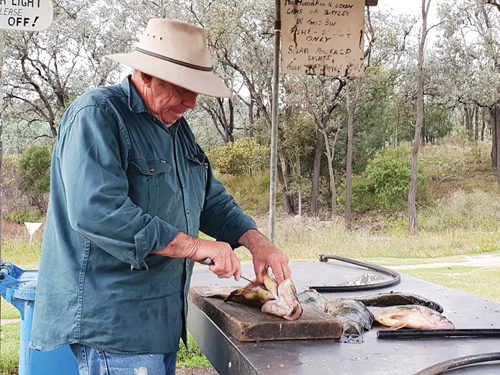
Recommendations from the review Freshwater workshops
- The review team’s view is that the bulk of initial funding to introduce the proposed new arrangements will come from Government – work needs to commence on the new arrangements immediately and will require considerable upfront investment before substantial practical benefits begin to flow to all sectors
- Over time, both commercial and recreational fishers should make a greater contribution to the costs of management
- For the commercial sector, Fisheries Queensland should develop, over the course of the next two years, a detailed policy and transitional timeline for the introduction of cost recovery in Queensland’s commercial fishery
- For the recreational sector, the review team’s view is that the reforms proposed will ‘work’ without a recreational fishing licence, but will work considerably better with one
- The Government should commit to a more detailed examination of the cost and benefits of introducing an all waters RFL in the context of any new fisheries management arrangements – the examination should test the level of support among the broader recreational fishing community to an all waters RFL under a range of different scenarios, including:
-
- To whom should the licence apply
- Which species, water and activities should it cover
- How much should it cost, and how much is it expected to raised
- For what purpose could the funds be spent
- Who would administer the funds, and under what governance model
- How would any RFL interact with the existing SIPS and RFU fees, for example would they be rolled into a single scheme
- How would recreational fishers be able to have their say on how funds should be spent?
The study should involve a very high level of consultation with recreational fishers, and ultimately provide advice to the Government on the level of support for various options, the pros and cons of each and make recommendations on a proposed plan of implementation for any preferred future model.
To ensure equity between sectors, the introduction of any new recreational licensing regime should be introduced in parallel with new commercial cost recovery arrangements.
So, there you have it! Freshwater workshops
At this stage, do we have a vote of ‘confidence’ or ‘no confidence’ in Fisheries Queensland?
In 20 years’ time, can we afford this lack of funding?
 Bush 'n Beach Fishing Magazine Location reports & tips for fishing, boating, camping, kayaking, 4WDing in Queensland and Northern NSW
Bush 'n Beach Fishing Magazine Location reports & tips for fishing, boating, camping, kayaking, 4WDing in Queensland and Northern NSW
